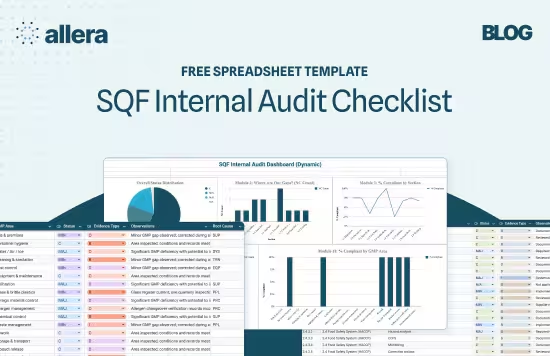

How 2024 Changed Food Manufacturing and What's Next in 2025

The food manufacturing industry experienced a digital awakening in 2024, with established companies finally embracing the quality assurance and supplier management technologies they'd been hesitant to adopt. As we move through 2025, the question isn't whether to go digital—it's how quickly you can catch up to competitors who are already reaping the benefits.
Why 2024 Became the Tipping Point
Last year marked a fundamental shift in how food manufacturers approached digitalization. Legacy companies that had operated the same way for decades suddenly found themselves racing to implement digital QA systems. What changed?
1. The Competitive Reality Check
Companies that maintained paper-based processes watched their digitally-enabled competitors pull ahead with faster response times, lower operational costs, and superior quality control. The gap became impossible to ignore when customers began choosing suppliers based on digital capabilities like real-time traceability and automated compliance reporting.
2. Technology Finally Delivered on Its Promise
After years of overhyped solutions, 2024 saw digital QA platforms mature into genuinely user-friendly, cost-effective tools. The technology finally matched the needs of traditional food manufacturers—intuitive enough for existing staff, robust enough for complex operations, and affordable enough to justify the investment.
3. FSMA 204 Compliance Drove Urgency
The FDA's Food Safety Modernization Act Rule 204 implementation in January 2026 created a hard deadline that paper-based systems simply couldn't meet. Companies realized that manual record-keeping wouldn't support the comprehensive traceability requirements, forcing them to digitize or risk compliance failures.
4. Efficiency Gains Became Undeniable
The operational improvements from digital systems proved too significant to ignore. Companies reported 40-60% reductions in quality documentation time, 30% fewer supplier audit cycles, and near-elimination of compliance-related errors. These weren't incremental improvements—they were transformational.
The Current Landscape: Where We Stand in 2025
As we progress through 2025, the digital divide in food manufacturing is becoming more pronounced. Early adopters are now leveraging advanced analytics, predictive quality monitoring, and automated supplier scorecards. Meanwhile, companies still relying on paper systems are struggling with basic traceability requirements and finding it increasingly difficult to attract quality-conscious customers.
What This Means for Your Operation
If you're still evaluating whether to digitize your QA and supplier management processes, consider that the question has evolved from "Should we?" to "How quickly can we implement?" The companies that moved first have established significant advantages in efficiency, compliance, and market positioning.
The path forward involves more than just replacing paper with screens—it requires rethinking your entire approach to quality assurance, supplier relationships, and operational efficiency. The most successful transformations we've supported integrate digital QA with broader operational improvements, creating compound benefits that extend far beyond compliance.
Moving Forward: Your Digital Transformation Strategy
Success in 2025 requires a strategic approach to digitalization that goes beyond basic compliance. Focus on platforms that can grow with your operation, integrate with existing systems, and provide actionable insights rather than just data storage.
The food manufacturers thriving today didn't just digitize their old processes—they reimagined how quality assurance and supplier management could work in a connected, data-driven environment. That's the opportunity available to companies ready to make the leap.
At Allera, we've supported over 100 food manufacturing facilities through their digital transformation journey. If you're ready to move beyond paper-based QA and supplier management, we'd be happy to share what we've learned about successful implementations. Contact us to explore how digital transformation can work for your operation.
.avif)





.avif)


.avif)


.avif)